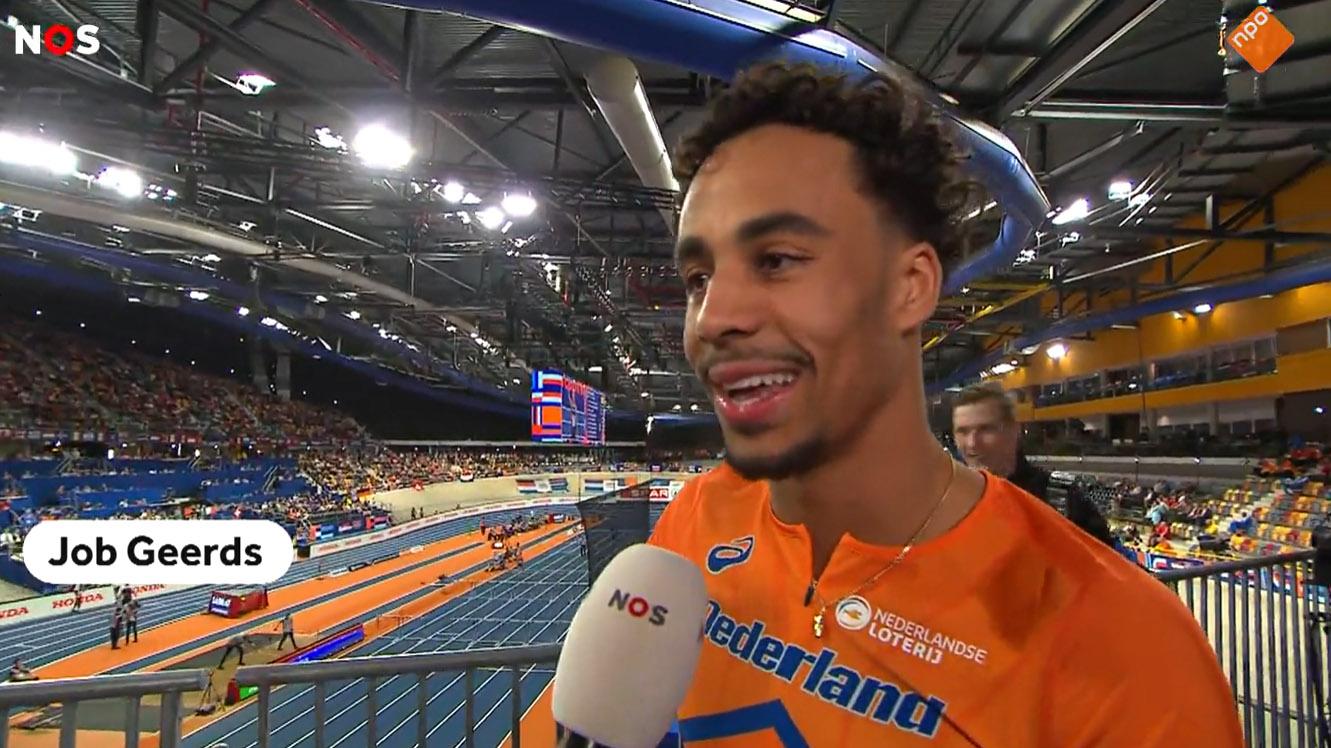Law student is sensational, but still dissatisfied
Job Geerds flies through to the final hurdle at the European Athletics Championships

Job Geerds (22) ultimately finished fifth in his first international final. He did so in the discipline in which he had won the national title for the past three years.
Cheered on by the home crowd, he had briefly hoped for a medal after a good start, but that was over by the last hurdle. "It went a bit into my hamstring. I don't know yet if it's just a twinge or a real injury."
The Law student will just have to wait and see, but the injury did add to his disappointment afterwards. He had not yet fully recovered from an earlier injury to that same hamstring.
The stadium exploded
Despite this, Job enjoyed the championship in his own country. "A tournament in the Netherlands is much more fun. My family and friends could come and watch. And when they announced my name, the whole stadium exploded."
However, though more attention meant more pressure, it ended up having a positive effect on his performance. "I run faster under pressure." In the semi-finals, Job surprised everyone with a personal best of 7.54 seconds, just two-hundredths of a second above the Dutch record of Gregory Sedoc, the now-retired athlete and current NOS commentator.
"But that two-hundredth of a second is not my goal," he says confidently. He likes to dream big. He wants to be one of the best athletes in the world and of all time. That means winning a medal at the Olympic Games in Los Angeles in three years.
In the short term, he is looking towards the World Cup outdoors in Tokyo, where he hopes to qualify for the final in the 110-metre hurdles. A distance that, due to his tall frame, actually suits him better than the shorter indoor version. "I will have more time to get up from the starting position."
Only getting harder
Job is not only a top athlete. He is also a student. He still has to pass two courses to complete his Bachelor's degree. "It's difficult and only getting harder. I passed everything in the first two years, but now I'm still stuck with those two courses. I've been abroad more often, so I've had to miss an exam for the third time."
But, in general, he feels that the university has been helpful. "The teachers like what I do. I don't have to be present and they also see if exceptions can be made for exams, like taking them orally."
He acknowledges that studying increases his stress. He regularly sits in his hotel room studying when he should be fully focused on the competition. "I think I'll only be able to give the sport one hundred percent once I graduate." That's why he doesn't know if he will get a Master's degree. "If I can make a living from the sport, maybe not."
After all, it's hard to combine top-level sports with study or work. Until recently, Job had a part-time job at a Law firm in Zuidas to finance everything. He also earns some extra money by giving courses. "But then I found a good sponsor, which allowed me to quit my part-time job."